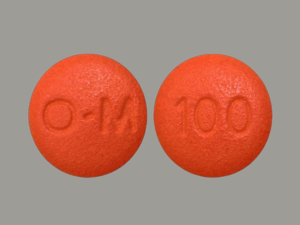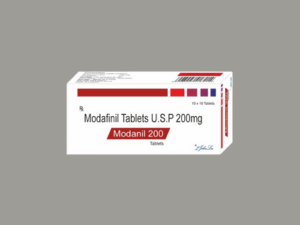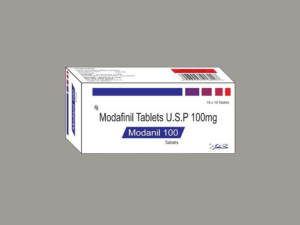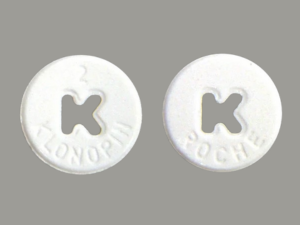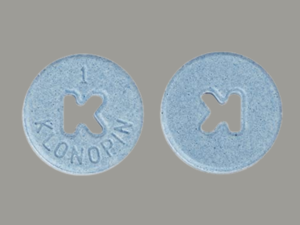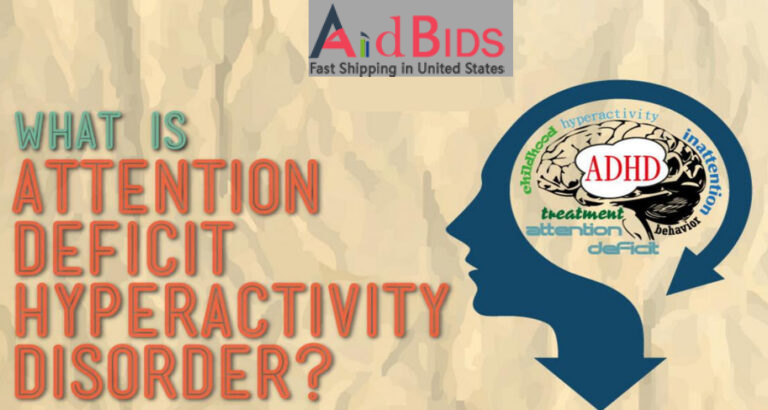
Possible causes of Attention Deficit Hyperactivity Disorder
Nowadays, Attention Deficit Hyperactivity Disorder or ADHD is a widespread emotional disorder in the United States, affecting millions of US residents every year. According to a report by additude, about 6.1 million children in the United States between ages 2 to 17 are estimated to have been diagnosed with Attention Deficit Hyperactivity Disorder. And, taking this condition lightly may prove dangerous for you or your loving one’s health.
Many people mistake attention deficit hyperactivity disorder as a mental health disorder that only affects teenagers or children. It’s a myth, not a fact. ADHD actually affects many adults, too.
Table of Contents
What is Attention Deficit Hyperactivity Disorder?
Attention Deficit Hyperactivity Disorder refers to the short form of attention deficit hyperactivity disorder, an emotional disorder that affects how you pay attention, sit still, focus on a task, and control your behavior. Most commonly, ADHD seems in childhood. However, in some cases, this brain disorder may continue into adulthood and can affect adults as well.
According to medical experts, boys are more likely to experience ADHD in comparison to girls. An ADHD disorder is usually spotted during the school years when a child begins to face concentration problems or an inability to pay attention. As a matter of fact, ADHD cannot be prevented entirely. But spotting ADHD early, and having appropriate treatment and behavioral changes, can help a child or adult manage and minimize their symptoms.
Most common types of Attention Deficit Hyperactivity Disorder?
There are three significant types of attention deficit hyperactivity disorder including;
- ADHD (combined type): This condition is the most common type of attention deficit hyperactivity disorder. This type of ADHD is characterized by hyperactive and impulsive behaviors as well as distractibility and inattention.
- ADHD (hyperactive/impulsive type): This type of ADHD is the least common type of ADHD. Hyperactive and impulsive behaviors characterize this ADHD type without distractibility and inattention.
- ADHD (inattention and distractible type): This particular type is characterized by distractibility and inattention without hyperactivity.
What causes Attention Deficit Hyperactivity Disorder?
Attention deficit hyperactivity disorder is one the most researched areas in children or adolescent mental health. However, the actual cause of this disorder is still unknown. Available pieces of evidence suggest that ADHD is genetic.
According to researchers, ADHD is a brain-based biological disorder that may occur because of low dopamine levels. Brain imaging studies using PET scanners show that brain metabolism in people with ADHD is lower in the areas that control attention, movement, and social judgment.
Behavioral patterns of ADHD patients/children and their symptoms
Here are the most common symptoms of attention deficit hyperactivity disorder. However, each patient may experience symptoms differently. The main three categories of symptoms of ADHD include the following;
Inattention:
- Difficulty listening to others;
- The short attention span for age;
- Difficulty attending to details;
- Easily distracted;
Impulsivity:
- Has difficulty waiting for their turn in school or social events;
- Often interrupts others;
- Tends to blurt out answers or solutions instead of waiting to be called upon;
- Taking frequent risks without thinking about the results, etc.
Hyperactivity:
- Has difficulty remaining in their seat even when it is expected;
- Seems to be in constant motion; climbs or runs, at times with no apparent goal;
- Talks excessively;
- Fidgets with hands;
- Difficulty in engaging in activities;
- Inability to stay on a task, etc.
Certain other symptoms are also possible in unique cases; all you need to do is observe your child’s behavioral patterns and signs closely and let your doctor know.
Stages of ADHD from childhood to adulthood
The only constant of attention deficit hyperactivity disorder or ADHD symptoms is that they change in each child. ADHD symptoms vary not only from month to month but also with development stages. In pre-school children/patients, hyperactivity is most apparent and impairing. Inattention becomes more salient once a child faces and experiences school life.
In adulthood and adolescence, hyperactivity shrinks, and impulsiveness and inattention become most impairing, especially in social events.
How to know if you have ADHD?
It is never easy to judge if your child has ADHD or not, only on behalf of particular known symptoms. There is no unique or definitive test for attention deficit hyperactivity disorder. Instead, diagnosis is the only process to determine whether a child has ADHD or not. A diagnosis process takes several steps and involves gathering data from multiple online and offline sources.
Note: If your child shows any 6 of the earlier mentioned symptoms, you should inform your doctor or go for a diagnosis. Please do not treat or manage your child’s ADHD by forcing him to pay attention or punishing him for mistakes. This can affect your child negatively, make the condition more severe and demotivate him.
ADHD Comorbidities and Related Conditions
Roughly 80% of those with ADHD are diagnosed with at least one other psychological disorder at a point in their life. The typical attention deficit hyperactivity disorder comorbidities include;
- Behavior problems
- Learning disorder
- Peer problems
- Increased injuries
- Anxiety and depression, etc.
Behavior or Conduct Problems
Children occasionally act angry or respond aggressively when they are upset. When these behavioral patterns persist over time or become severe, they are known as behavior disorders. Children or adults with ADHD are more likely to be diagnosed with Oppositional Defiant Disorder or Conduct disorder.
Learning Disorder
Many children and adults with ADHD also experience a learning disorder also known as LD. Having this disorder means that a kid has an apparent difficulty in one or more areas of learning, even when their intelligence is constant. A learning disorder may include;
- Dyslexia (difficulty with reading)
- Dysgraphia (problem with writing)
- Dyscalculia (problem with the calculation)
The combination of ADHD and LD can make it difficult for a child to succeed in school or other social events. A proper diagnosis and treatment can help your child.
Anxiety and Depression
Many children and even adults have worries and fears. However, it may be an anxiety disorder when someone experiences so many worries and fears that they interfere with home, school, office, or playing activity. People with ADHD are more likely to experience anxiety than people without ADHD.
Examples of an anxiety disorder include;
- Social anxiety: being very afraid of places where they may meet new people. E.g., school, college, or seminar.
- Separation anxiety: feeling worried when going away from family or their loving ones.
- General anxiety: being concerned about the future and upcoming things or events.
Depression
Occasionally being sad and feeling hopeless is a part of children’s life. Long-term hopelessness can cause depression. Signs of depression;
- Feeling desperate or low for a long time
- Having a hard time focusing
- Not wanting to do things that are not fun
- Feeling useless or worthless
Other conditions like increased number of injuries can occur because of inattention due to ADHD. Consult with your doctor for more information.
How to get diagnosed with ADHD?
There is no set formula for which drug/treatment works best for which child. Your doctor will perform some behavioral tests to find out which drug is the best for your child. Your healthcare provider will often start your child on a low dose of a stimulant like Adderall, Adderall XR, etc.
Five best ADHD medicines
A number of anti-ADHD medicines are available on the market. Most drugs are effective against the primary symptoms of ADHD. But, when you need to treat long-term ADHD symptoms, you should rely on any of these five best ADHD medicines;
- Adderall
- Amphetamine and dextroamphetamine (generic name of Adderall)
- Focalin XR (dexmethylphenidate)
- Dexedrine (amphetamine)
- Evekeo (amphetamine)
- Quillivant XR (methylphenidate)
Side effects of ADHD Medications and how to prevent them?
ADHD medicines work through the GABA receptors in the brain and nervous system and may cause the following side effects:
- Stomach issues such as stomach pain and loss or change in appetite.
- Unusual weight loss
- Mood swings and nervousness
- Irregular heartbeats
- Headache
Avoid ADHD medication if you have the following symptoms
Please observe your health and immediately stop using ADHD medicines if you experience:
- Pain and pressure in the chest
- Difficult breathing
- Hallucinations
- Mood and behavioral disorders
- Pain or numbness in the body
ADHD medications can interact with other medicines like;
They can dangerously interact with the following medication and adversely affect your health:
- Selective serotonin reuptake inhibitors (SSRIs)
- Antidepressants
- Medications used for maintaining blood pressure level
- Heartburn medication
- Blood thinners
- Cold and allergy medications
This is all you or a patient need to know about ADHD and its treatment. For a more detailed blog on the same topic, please drop a comment below. We will come up with another informative blog; meanwhile, stay safe, stay healthy.

